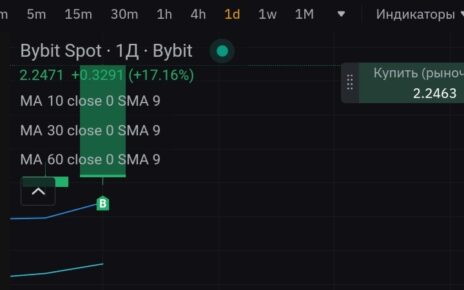The cryptocurrency market experienced a significant downturn as Bitcoin’s value plummeted by 8% following heightened geopolitical tensions between Iran and Israel. This event marked the largest retreat for Bitcoin since March 2023, according to a recent Bloomberg report.
Iran’s retaliation, triggered by a fatal attack in Syria resulting in the loss of senior Iranian military figures, escalated the ongoing regional conflict to a dangerous new level. Reports indicated Iran’s launch of an extensive arsenal, including drones, cruise missiles, and ballistic missiles, towards Israel.
Bitcoin’s price dipped below $62,000, signaling a sharp 7.7% decline. Other major cryptocurrencies, including Ethereum and Binance Coin, also experienced notable losses, with Ethereum dropping by 7% and Binance Coin by 9%. Solana witnessed a significant decrease of 12% within 24 hours and over 22% over the past 7 days.
Cryptocurrencies began to recover following a message from an account associated with Iran’s UN mission, suggesting the end of the attack. However, Bloomberg’s report hinted at potential further sell-offs in the cryptocurrency market. Zaher Ebtikar, founder of the Split Capital crypto fund, emphasized that the extent of the sell-off “likely depends on further escalation” and highlighted the importance of monitoring market trends.
While Bitcoin rebounded after its initial decline, reaching $64,003 at the time of publication, experts speculate on the potential impact of geopolitical tensions on cryptocurrency prices in the future. Continued conflict or escalation could lead to further market volatility and sell-offs. Conversely, a de-escalation or resolution may stabilize the market and restore investor confidence.
As geopolitical tensions remain fluid, traders and investors are advised to closely monitor developments and adjust their strategies accordingly. The cryptocurrency market’s sensitivity to geopolitical events underscores the need for a nuanced approach to risk management and forecasting.



